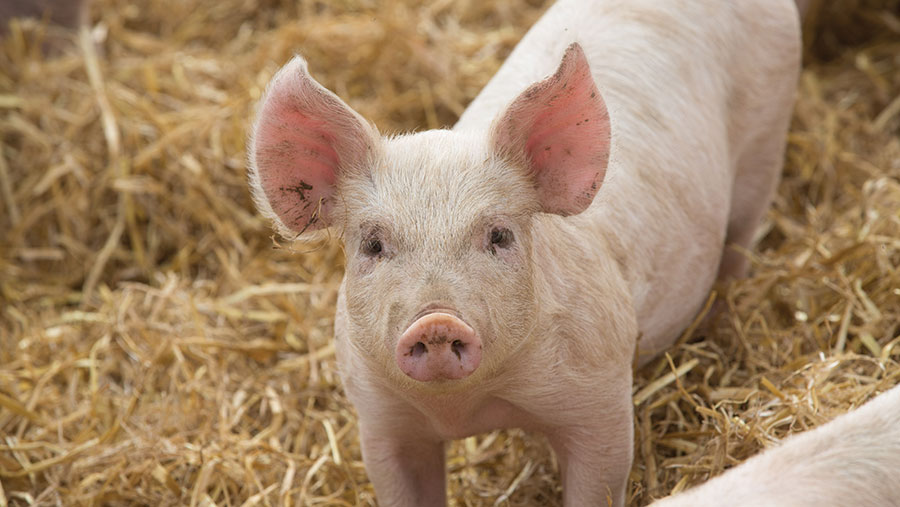Suffolk swine dysentery outbreak demands vigilance
 © Tim Scrivener
© Tim Scrivener Pig units should step up biosecurity after the confirmation of a swine dysentery outbreak on a Suffolk farm, industry leaders have advised.
Veterinarians are working to clarify the origin of the outbreak, which was suspected to be present on the unit for 10 days.
AHDB Pork urged the industry to monitor for clinical signs over the coming weeks and show vigilance with heightened biosecurity.
See also: Survey highlights pig health worry ahead of zinc oxide ban
This follows a rise in swine dysentery cases in 2019, which led to the cancellation of several major summer showing events.
How to spot swine dysentery
- Pigs often appear dull, depressed and inappetant
- Sunken sides to the abdomen
- Faeces ranges from soft to almost water and can contain blood mucous and necrotic gut lining in severe cases
- Faeces gives off a distinctive and unpleasant smell
- Dehydration is common
- Disease runs over a number of days
- Rectal temperature lifts to about 41C, but this falls after a few days
- If you suspect your pigs have swine dysentery, you should contact your vet immediately
Source: National Animal Disease Information Service (Nadis)
Fewer cases than 2019
Latest national data shows less than one-third of the cases in 2020 compared with the same point last year.
The Animal and Plant Health Agency’s (Apha) surveillance dashboard showed six cases for the first seven months of 2020, compared with 21 cases to the same point last year.
Official sources have confirmed five premises with swine dysentery in the first half of 2020 in North Yorkshire, Devon and Kent.
Importance of Significant Diseases Charter
National Pig Association chairman Richard Lister urged producers to give extra consideration to biosecurity in light of swine dysentery in the UK and Germany’s African swine fever outbreak.
Mr Lister said: “Swine dysentery was a big challenge for our sector last year, and while we have significantly fewer cases, there are a number of fresh cases.
“Swine dysentery is a highly transmissible disease and therefore it is really important to be signed up to the Significant Diseases Charter run by AHDB.
“It aims to control disease quickly and effectively and currently covers the sharing of information for both swine dysentery and porcine epidemic diarrhoea virus outbreaks.”
He added that strict protocols should be adhered to, including checking that all transport is thoroughly clean between pig movements in line with the #muckfreetruck campaign.
How do I sign up to the Significant Diseases Charter?
- Enrolment is possible through the producer or corporate section of a farm’s Pig Hub account
- Any queries on accessing the Pig Hub account should be sent to pighub@ahdb.org.uk
- Sharing disease details cannot damage your reputation because personal details are not shared and location is only regionalised to the outcode of a postcode.
